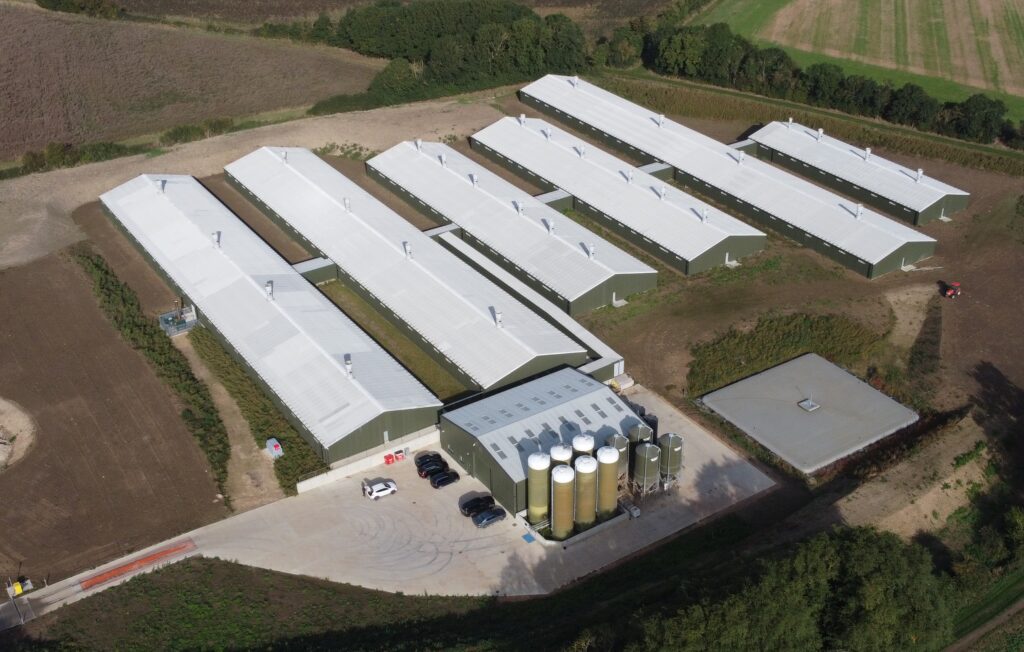The NPA has used a ministerial roundtable event to call for reforms to the planning system to enable the UK pig sector to produce more and deliver on its welfare and environmental objectives.
Chief executive Lizzie Wilson attended a Defra ministerial roundtable, hosted by farming minister Daniel Zeichner. on planning reform for pig and poultry stakeholders last week, as the department considers changes to planning rules that the industry hopes will ease current restrictions on the process.
“The planning system is currently a big constraint for the pig industry. We believe the system, as it stands, currently, is not fit for purpose,” Ms Wilson said, after the event.
“It creates unnecessary barriers to those wishing to expand in order to produce more high-quality British pork. We also fear these barriers could prevent or slow down the transition to flexible farrowing systems, if farmers can’t get permission to erect new buildings.
“And in the week the government has updated its Farming Rules for Water guidance, it was clear that improving slurry storage capacity is going to be increasingly important for many producers. But they will not be able to achieve this without a supportive, responsive planning systems.
“I therefore welcomed the chance, alongside others form across the pig and poultry sectors, to set out the changes we would like to see to make the system work for businesses and help the government deliver on some of its key objectives around national food security, net zero and land use change.”
Key asks
The NPA, along with other stakeholders, made a number of asks at the roundtable, including:
- Expanding Permitted Development Rights: An extension in the permitted allowance from 1,000m2 for livestock agricultural buildings to, for example, around 1,500 m2, would help facilitate improvements with regard to welfare and environmental policy, particularly in delivering the transition away from conventional farrowing systems.
- Apply biodiversity net gain (BNG) more proportionately: BNG is a national requirement for all full applications over 25m2, requiring assessment of a site’s baseline biodiversity and mitigation or offset proposals. In practice, this is often costly and impractical. Even the most basic pig farm proposals, such as a simple straw shed, are now taking around eight weeks to prepare, due to the sheer difficulty in securing an ecologist. At a minimum, the requirement should be limited to major applications of more than 1,000m2.
- Ensure more consistency among local planning authorities: There is currently a tangible lack of consistency among LAs, with vastly different approaches across the country. There can be disproportionate requirements for pig-specific planning applications, generally related to environmental assessments, but also issues not even considered within the planning process, such as welfare. The NPA would like to see robust enforcement of any changes by government to ensure LAs provide nationally consistent advice and approval.
- Remove any requirements for muck and slurry application from the planning process: There is, again, inconsistency as the government is actively encouraging the use of organic fertilisers, yet the planning system considers this to be problematic and is effectively facilitating the increased use of artificial fertilisers. For, example, the current system often results in farmers being forced to commit to exporting muck off-site, usually to an AD plant, only to then purchase muck back onto the farm for use on their own land.
- Addressing ammonia thresholds: The current thresholds which planning applications use for ammonia emissions, nitrogen deposition and subsequent impact on local sensitive sites are extremely low and make proportionate agricultural expansion virtually impossible. The result is that roughly 90% of applications now fail basic screening. There is also increasing inconsistency in how local authorities interpret and apply these thresholds across the country. The NPA would like to see a national edict on ammonia thresholds around non-statutory sites and robust enforcement of any changes by government, to ensure LAs provide nationally consistent advice and approval.




